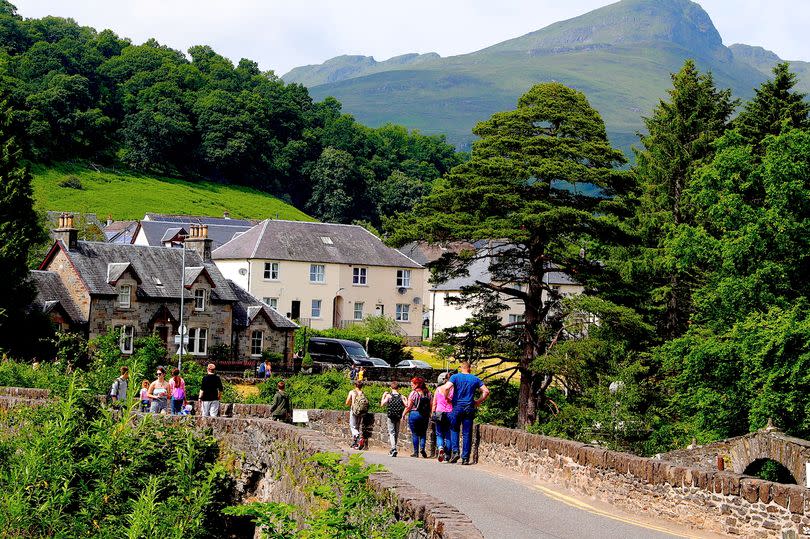Axed Killin to Callander rural bus gains reprieve as councillors approve pilot service

A rural bus service subject to a major community campaign is set for a reprieve after councillors gave the green light to a two-year in-house pilot of the service.
The plans were approved at a full meeting of Stirling Council yesterday (Thursday), where members were given a range of options for the future of the C60 service, which runs between Killin and Callander.
The service was axed in March after previous operator Kingshouse Travel informed the local authority that it would be unable to run the bus due to staffing issues related to recruitment of drivers.
Bids were then welcomed to take over the route, but no viable offers were put forward - while a grassroots campaign in the villages across the route gathered pace, with hundreds of messages in support of finding a permanent solution.
According to the proposals, a hired minibus will service the route for four return journeys per day from July - one fewer than was the case previously - with a capacity of 16 seats.
The pilot service will also offer connections alongside other commercial services to ensure residents from rural areas are able to get work in Stirling for 9am, a concern which has formed one of the key criticisms from locals.
Stirling Council will also charge fares for passengers on the bus to help offset some of the costs associated with running the route.
At the meeting, Trossachs and Teith councillors Gene Maxwell and Martin Earl both “welcomed” the pilot - but both raised questions with council officers over the proposed July start date.
Cllr Maxwell said it was a “shame” that the route wouldn’t be in place until that date and asked why council chiefs hadn’t been more proactive in putting to get a service in place immediately after the Kingshouse bus stopped.
Meanwhile, Cllr Earl expressed hope that a service could be offered for free before a Section 22 permit - required to introduce a fare structure - is formally approved.
Ahead of the meeting, Cllr Earl told the Observer: “Good public transport is a fundamental need, not a ‘nice to have’ option.
“Without it, access to education, job, health and social needs is not possible for many. The more rural a community is the more important it is that they have reliable transport options.
“There are also many fine words uttered about reducing car journeys, well without decent, connected public transport it will remain just that, talk.
“For all these reasons one cannot fixate on a narrow definition of what it costs to run these services. The wider costs of not having it is enormous and paid by many.”
A statement from the Keep The Bus group offered a cautious welcome to the pilot scheme - but urged consultation with communities on the route to make sure it meets the needs of those reliant on the bus.
The statement said: “The C60 group understands a push will be made to approve a two-year pilot.
“However, while this would be welcomed as a positive reinstatement of services and a step forward, concerns remain over what would happen at the end of any time limited scheme, what schedule would be operated within the structure of four return journeys per day, how the service would link with other services beyond Callander, and whether costs would be in line with similar route structures across the region, especially as bus companies will only receive circa 60 per cent of the fare on concession tickets, with a majority of bus users being on concession tickets.
“We are also concerned that minimum utilisation levels would be expected, as this will be a seasonal tourist figure against local and occasionally difficult to predict use.
“All factors must be considered and discussed to ensure this service is a continued success.
“We feel very strongly on being consulted on these points for the benefit of the council and end users alike, and firmly believe this route needs to be viewed as nonprofit but a necessary service.
“The impact of this proposed two-year pilot will be a significant step forward in lessening fears that rural connectivity is being decimated.’’

 Yahoo News
Yahoo News 
